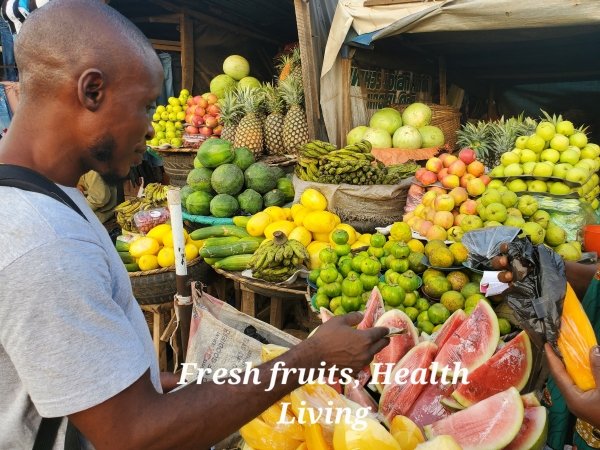According to the Center for Disease Control and Prevention (CDC), eating a diet with plenty of fruits and vegetables has many health benefits.
CDC revealed that fruits and vegetables add nutrients to the diet that help protect the body from heart diseases, strokes, and cancer, lower the risk of eye and digestive problems, and have a positive effect on blood sugar, which can help keep appetite in check.
Also, choosing vegetables, fruits, and nuts over high-calorie foods can help you manage your weight.
In September 2018, National Agency for Food and Drug Administration and Control (NAFDAC), warned Nigerians against the consumption of rotten tomatoes.
The agency disclosed that rotten tomatoes contain microorganisms that induce cancer.
To maintain a properly balanced diet, it's important to include fruits and vegetables in our daily meals because they contain lots of minerals and vitamins that help keep the body healthy.
Fruits and vegetables, in all their numerous nutritious benefits, can be very harmful if not eaten safely. It has several negative effects as it contains harmful bacteria, fungi, and toxins.
Consuming rotten fruits and vegetables can lead to food poisoning. Food poisoning occurs when bacteria such as Salmonella, E. coli, or Listeria grow on the food and produce toxins that can make one sick.
Additionally, eating rotten fruits and vegetables can lead to the ingestion of mold, which can cause allergic reactions or even toxic reactions in some individuals.
Some molds produce mycotoxins, which can lead to liver and kidney damage, and long-term exposure to mycotoxins can increase the risk of cancer.
Furthermore, some fruits and vegetables, such as potatoes and tomatoes, can develop solanine and glycoalkaloids, which are toxins and compounds that can cause nausea, vomiting, and diarrhea when consumed in large amounts.
For a healthy living it is important to only consume fresh fruits and vegetables to avoid diseases and infections.
In developing countries, traders display rotten vegetables and fruits for sale at a lower price.
"I cannot discard the spoiled products because I spend money to buy and transport them to the markets." If I discard the spoiled ones, I will be at a loss.
"I am already at a loss because the quality of the produce has decreased." "I have customers who buy these products; in fact, they rush them, especially restaurant owners and low-income earners who cannot afford to buy the fresh tomatoes," said a tomato trader at Avu Market in Owerri, Imo State, Nigeria”.
Another trader in Kuto Market, Damilola, revealed that some of these vegetables get spoiled or rotten at the point of transportation, packaging, and harvest.
"As you know, we farmers package our fruits and vegetables in raffia baskets and transport our goods with trucks that have no cooling system."
"The Nigerian temperature is very high, and high temperatures can ripen these products," Gbenga, a popular farmer in Ogun State, stressed.
He added that to stop traders from selling rotten produce, a sustainable cooling system needs to be developed in Nigeria to improve farmer and trader income, adding, "If fruits and vegetables remain fresh as they were harvested from the farm, vegetable traders will not see rotten tomatoes to display, and individuals will not see reasons to compare high and low prices; all things will be equal."
Therefore, to maintain food sanitation, improve a healthy lifestyle, and protect the food we consume, it is important for farmers, traders, investors, and the government to pay attention and adopt innovations that deal with food storage.
Farmers need to undergo training in post-harvest management, create awareness and campaign on the importance of the cold chain industry.

